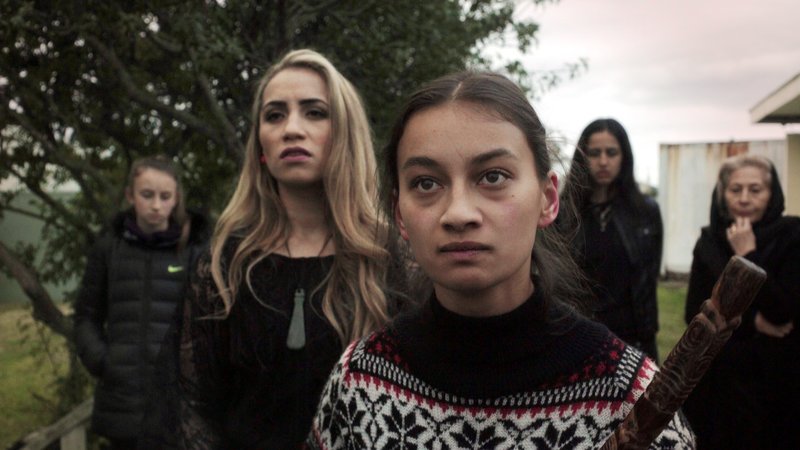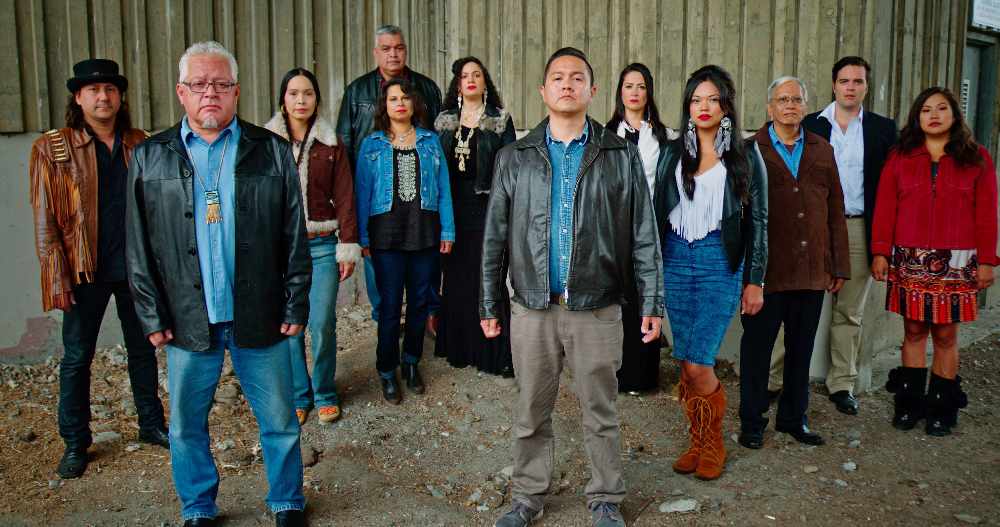Image Caption
By Sam Laskaris
Windspeaker Contributor
TORONTO
Organizers are hoping for yet another record-breaking attendance year at Toronto-based Indigenous film festival imagineNATIVE.
The 18th annual festival begins tomorrow and continues until Sunday.
“For most of our history it’s been a growth beyond our expectations each year,” said Jason Ryle, the festival’s artistic director.
imagineNATIVE, which was first staged in 2000, has always been a five-day festival. During its inaugural year the festival featured between 20 to 30 films. This year there will be 115 films shown at the festival, which has become the world’s largest Indigenous film and media arts event.
imagineNATIVE has predominantly been, and continues to be, a short film festival. A total of 102 shorts are being featured this year.
In the early days of the festival, organizers had the difficult task of finding sufficient Indigenous films to show.
“We don’t do that anymore,” he said. “We haven’t done so for quite some time.”
That’s because there are plenty of people now hoping to get their works into the festival. About 400 submissions were sent in for this year’s imagineNATIVE.
In order to be considered as a festival entry, a film must have an Indigenous director or screenwriter or have an Indigenous key active creative producer.
A year ago the festival attracted a record of about 19,400 spectators. Ryle is hoping to surpass the 20,000 figure this year.
“Fingers crossed,” he said. “We really hope to do that, especially this year since there is a heightened awareness (of Indigenous issues).”
Ryle said Canada 150 celebrations and reconciliation discussions have brought Indigenous issues to the forefront in 2017.
But it is not primarily just Indigenous people who attend imagineNATIVE. Ryle said since 2004 the festival has been conducting audience surveys. And every single year there has been a slight majority of non-Indigenous spectators.
Of those who filled out the survey last year, 54 per cent said they were non-Indigenous.
“It speaks to the interest of that work,” said Ryle, adding the festival is viewed as a bridge builder between Indigenous people and the community.
One of the new features of this year’s festival is an event called A Wall Is A Screen, which is a free 90-minute walking tour, including stops to show short films. The films are displayed on various surfaces along the urban path of the tour.
“We don’t tell attendees where we are taking them,” Ryle said.
A Wall Is A Screen was founded in Hamburg, Germany. Ryle himself has been on A Wall Is A Screen tours in Hamburg, Glasgow and in Winterthur, Switzerland.
“It’s always been an incredible experience and something I’ve been excited to be a part of in the past,” he said.
Since this event is free, Ryle said it’s tough to speculate how many people will show up for the Toronto tour.
“I hope it’s received very well,” he said.
Cree actor Tina Keeper will be honored at this year’s festival. Keeper is this year’s recipient of the August Schellenberg Award of Excellence, also called the Augie.
The annual award goes to a North American-based Indigenous actor in recognition of significant professional and personal achievement.
Keeper, a member of Manitoba’s Norway House Cree Nation, is well “known for her role as RCMP officer Michelle Kenidi on the TV show North of 60.
As for the opening night gala, it will include the feature film Waru, a young boy who dies”. The film includes eight 10-minute segments of what transpires in the lives of eight Maori women during the morning of Waru’s funeral.
And the closing night gala will include the film "A Road Forward", a 101-minute musical documentary taking viewers on a journey through contemporary Indigenous civil rights in Canada.

Tomorrow's opening day features "Waru, a young boy who dies"

The Road Forward will be featured at the closing night gala.

